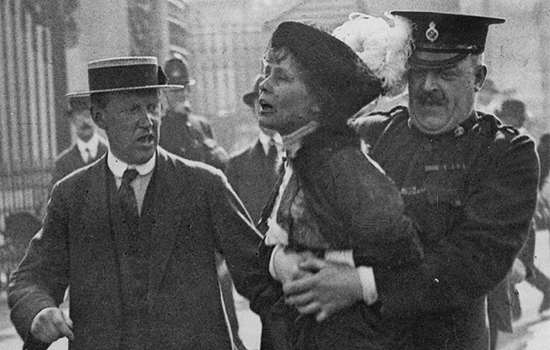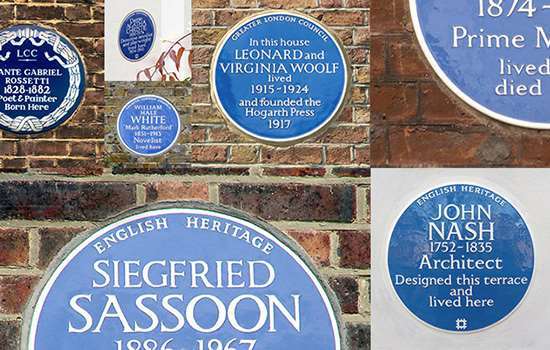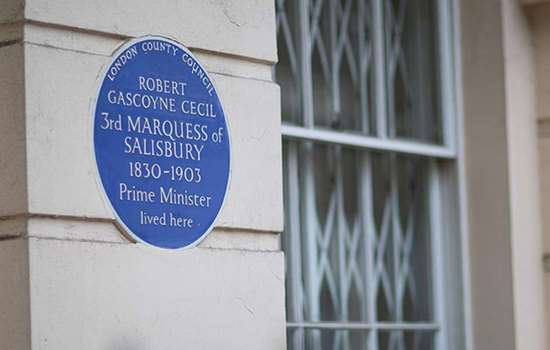COOPER CAR COMPANY
Plaque erected in 2018 by English Heritage at Hollyfield Road, Surbiton, London , KT5 9AL, Royal Borough of Kingston Upon Thames
All images © English Heritage
Category
Historical Sites
Inscription
The former works of the COOPER CAR COMPANY Winners of the Formula One World Championships in 1959 and 1960
Material
Ceramic
From their humble garage on Hollyfield Road in Surbiton, Charles Cooper, his son John, and their team of engineers designed and manufactured the racing cars that won the 1959 and 1960 Formula One World Championships. The Cooper Car Company pioneered the now-standard rear engine layout in Formula One, and saw famous drivers such as Stirling Moss and Jack Brabham steer their cars to glory. It was also from these premises – now commemorated with a blue plaque – that they manufactured the Mini Cooper racing car.
HOLLYFIELD ROAD GARAGE
Car mechanic Charles Cooper bought the plot of land on Hollyfield Road in the 1920s, and ran his garage from a row of sheds. Initially offering breakdown recovery services, he began servicing cars that competed at the Brooklands racetrack in Weybridge, just ten miles away. By 1946 Charles and his son John had built their own car to compete in the new 500cc racing class, and tested it on the nearby A3. Largely cannibalised from two Fiat Topolinos, the Cooper 500 featured an innovative rear-mounted engine. These early Cooper cars went on to dominate the Formula Three category.
At about this time the sheds at Hollyfield Road were replaced with a more unified structure, with the present building constructed in 1957–8. The production workshops were on the ground floor, and mechanic Mike Barney recalled them as
dark and gloomy, tools and bits all over the floor and cars low down on axle stands or wheels. We spent hours working on our knees … It was good though.
Charles and John Cooper’s offices were in the centre of the building on the first floor, with the drawing office on the right – occupied by Owen ‘The Beard’ Maddock, the racing car designer. The building was designed was Maddock’s father, Richard, and it has been suggested that the unusual curved façade was an intentional reference by Richard to the curved car chassis designed by his son.
FORMULA ONE
The curved tube chassis became one the trademarks of the Cooper Car Company, alongside their now-standard rear-mounted engine, and took them to the pinnacle of motorsport: Formula One. Stirling Moss won the Argentine Grand Prix in 1958, and Frenchman Maurice Trintignant won the Monaco Grand Prix in the same year. The Cooper Formula One team went on to win the world drivers’ and constructors’ championships in 1959 and 1960 with Australian-born Jack Brabham at the wheel, while other famous names who drove for Cooper included Mike Hawthorne and Jackie Stewart.
Charles Cooper, however, was unwilling to expand and invest in his business and the Cooper racing team was overtaken in Formula One by Lotus and others. Charles died in October 1964, and John Cooper – who found it even harder to work without his gruff father as he had to work with him – sold the racing side of the operation to the Chipstead Motor Group in April 1965. In all, Cooper cars took part in 129 Formula One races, winning 16 over a 9-year period, and around 1,500 racing Coopers were built.
MINI COOPER
The iconic Mini Cooper was launched in July 1961. John Cooper suggested it to the British Motor Corporation following the success of the road car, the Elite, from their British racing car rivals Lotus. The Mini Cooper has since been described as ‘the first economy car to be an object of universal desire’, mostly thanks to its starring role in the film The Italian Job (1969). The Coopers also developed a racing version of the Mini Cooper – manufactured at Hollyfield Road – which won the Monte Carlo rally in 1964, and twice won the British Touring car championship.
The Cooper Car Company moved their design and manufacturing business to Canada Road in Byfleet, Surrey, in 1965–6. The Hollyfield Road premises were subsequently used a Cooper Cars showroom before being leased to the Metropolitan Police for use as a police car depot – with two Mini Coopers in its car pool.


